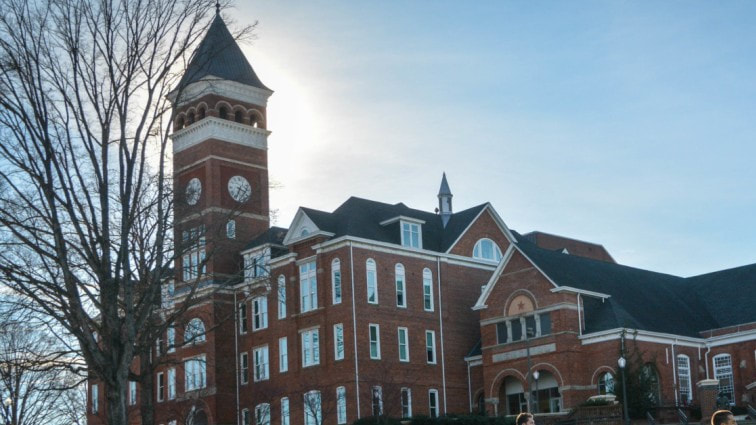|
Amidst the multifaceted and current aftershocks resulting from the national turmoil and tensions our country is experiencing, two NFL stars and Clemson alumni, DeAndre Hopkins and Deshaun Watson, have actively joined an effort to remove the name of American statesman and vice-president, John C. Calhoun, from the school’s honor college. The attempt to rename the honors college at Clemson University may win the day. In the last few days and weeks, many historical markers, statues, and related sites have been renamed or removed. It appears that no historical period, person, or movement is exempt from our current hyper-partisanship and lack of historical discernment. Of course, colleges and universities have the option to name or rename structures on their campuses. This happens all the time, and sadly is often driven simply by fund raising efforts. But Hopkin’s and Watson’s attempt constitutes nothing less than the tendency of contemporary Americans to demonstrate how we “forget who we are” and engage in what has become known as political correctness. The advocates of political correctness (an overused term, unfortunately) want to employ history for temporary political gains more than they desire to keep or understand it, and we fear their efforts unintentionally tend to further divide rather than unite the body politic. Perhaps worth considering is the Yale model: buildings are not renamed unless the original name is at odds with the mission of the institution, or if the overall “legacy” of the namesake is seriously deficient in some regard. At the end of the day, Calhoun should have passed this test. Clemson may now join the many operatives of political correctness who have met with great success of late. With Orwellian irony, in the past they succeeded in having a U.S. Navy ship named for a person who hated the Navy (Cesar Chavez) and have imposed “speech codes” (with the actual purpose of restricting speech) on many college campuses–as well as more destructive examples of assaulting First Amendment rights and redefining history. Even former President Obama was not above the fray as demonstrated by his renaming of Mt. McKinley. And, of course, President Trump is famous for renaming things after himself. The greatest threat to political correctness is an environment in which free and uninhibited discussion and disagreement can take place. In fact, diversity of thought is the opposite of political correctness, and is at the heart of a free society. The proponents of political correctness–and those who have succeeded in renaming and destroying so much–stand on the side of censorship against free and open discussion. And, in case we have not noticed, they are winning the day. Calhoun’s “legacy” is indeed complex and subject to debate. However, in denying Calhoun’s vital role in American political life, they have committed a great injustice to the rising generation of Americans. The untold story, now diminished even more by the Hopkins and Watson, is Calhoun’s importance to American political thought and history. While spending most of his public life in the United States Senate, he was also vice president under both John Quincy Adams and Andrew Jackson–and he served as secretary of state to John Tyler. He is generally regarded as one of the greatest senators ever, part of the “Great Triumvirate” with Henry Clay and Daniel Webster–and each supported the Fugitive Slave Act. What Hopkins and Watson do not want you to know is that Calhoun was not only one of America’s greatest statesmen, but also one of its greatest thinkers. His two treatises on American politics, the Disquisition and Discourse (published after his death), demonstrate his hope that America could avoid the pending conflict of the Civil War. In Calhoun’s interpretation, America’s greatest hope lay in the interposing and amending power of the states, which was implicit in the Constitution. This alone could save the country by allowing for a greater diffusion of authority and undermining the cause of sectional conflict. Calhoun’s purpose was the preservation of the original balance of authority and the fortification of the American political system against the obstacles it faced. Hopkins and Watson surely have good intentions. We admire their taking a stand for their ideals, and believe Calhoun would respect that as well. However, as Shakespeare warned, “men are men; the best sometimes forget.” John Calhoun was imperfect, but he remains one of the greatest statesmen in American history. In the world of Hopkins and Watson, neither the past nor the future deserve our attention, and we are only left with the option of muddling through the present. Our hope is that the entire Clemson community can come together to seek ways to use Calhoun’s legacy for good, much as they have done by transforming his home, bequeathed to them by Calhoun’s son-in-law Thomas Green Clemson who was also a slave owner, into one of the world’s great educational institutions. Editor's note: On June 12, 2020, the Clemson University Board of Trustees voted to remove John C. Calhoun's name from the Honors College. The history revisers have apparently not figured out that Thomas Clemson was a Confederate and slaveholder. Co-author Sean Busick is Professor of History at Athens State University in Athens, Alabama. He has published seven books and scores of essays on early American history. Among his books are Patrick Henry-Onslow Debate: Liberty and Republicanism in American Political Thought and A Sober Desire for History: William Gilmore Simms as Historian.
1 Comment
|
AuthorDr. H. Lee Cheek, Jr., is Professor of Political Science and the former Dean of the School of Humanities and Social Sciences at East Georgia State College. Archives |
Proudly powered by Weebly

